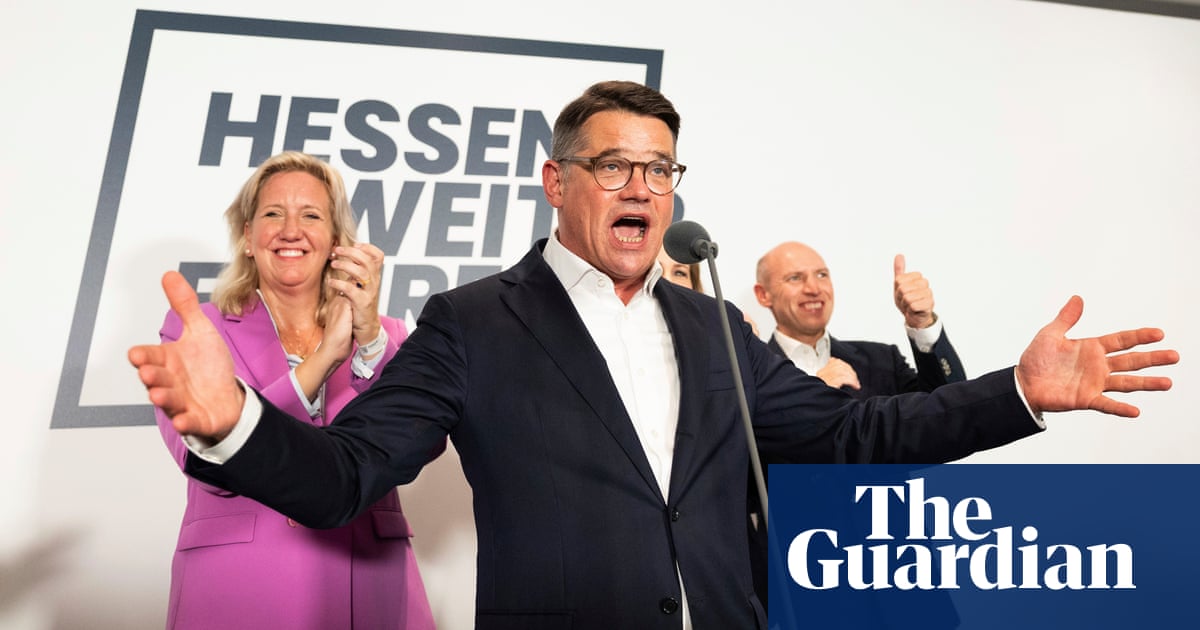Worries about the economy and migration pushed up share for far-right AfD in Hesse and Bavaria, while coalition parties did worse
German chancellor Olaf Scholz’s fractious centre-left coalition has received a sharp rebuke from voters in the key states of Bavaria and Hesse, with economic woes and immigration fears boosting the opposition conservatives and the far right.
At the elections on Sunday the far-right Alternative for Germany (AfD) party burst out of its post-industrial eastern strongholds to score its best ever result in a western state. Polls showed it on course to be the second largest party in Hesse, home to the financial capital Frankfurt.
All three parties in Scholz’s federal coalition – his Social Democrats, the Greens and the pro-business Free Democrats (FDP) – did worse than five years ago in the states, which together account for about a quarter of the German population.



I would say a lot of people in Germany are feeling left out/alone with their problems.
It’s been like this for at least 10, if not 20 or more years.
Most stuff is lobby and economy driven and we’re getting nowhere.
In came the afd offering easy solutions and appealing to the public (never mind their program stating completely otherwise) so I guess it gave people the feeling of someone doing something and caring for them.
And if not, pissing off the rest of the politicians.
At least the latter is working.
I do not support or condone this behaviour but it is not that hard to read.
And instead of approaching the real current issues (inflation, money issues, buerocracy, environment) directly most parties even try to move further right, to get the afd voters back, which is the worst they could do.